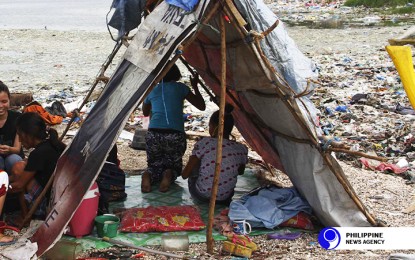
MANILA – Senator Christopher Lawrence “Bong” Go on Thursday called on concerned government agencies to facilitate a comprehensive assessment of the population and situation of informal settler families (ISFs), especially in Metro Manila, and provide them better opportunities to start anew in the provinces after the coronavirus disease (Covid-19) crisis.
“As the government continues to combat Covid-19, the poorest of the poor remain the hardest hit. Even if the entire Metro Manila eventually transitions to general community quarantine soon, the daily struggle for the urban poor, composed mostly of ISFs, remains the same or has become worse due to the effects of the pandemic - lack of decent and safe housing, low-paying jobs, lack of livelihood opportunities, and the constant threat of criminal elements lurking in busy streets,” Go said.
“Kailangan din natin mabigyan ng bagong pag-asa ang ating urban poor na pinaka-apektado ng krisis. Karamihan po sa mga ito ay galing probinsya at gusto na pong umuwi kung mabibigyan sila ng oportunidad na magkaroon ng mas maayos na buhay (We also need to give genuine hope to our urban poor who have been the most affected by the crisis. Many of them came from the provinces and have expressed willingness to go back if they would be given the opportunity to have a decent life),” he said.
The chair of the Senate Committee on Health and Demography urged the Department of Social Welfare and Development (DSWD), the Presidential Commission for the Urban Poor (PCUP), and the Department of Environment and Natural Resources (DENR) to rapidly assess the situation of ISFs as they should be the priority target beneficiaries of the Balik Probinsya, Bagong Pag-asa (BP2) program.
By providing the urban poor with better opportunities in the countryside, Go said they would be motivated to relocate back to their home provinces, helping solve in the process the problems in the metropolis related to congestion, such as poor quality of life, inefficiencies in the delivery of services, and environmental degradation.
A recent survey by the PCUP showed that many ISFs are willing to return to the provinces. The agency expects that as soon as the government finalizes various programs under BP2 program, more Filipino ISFs will consider applying for the program and opt to return to the provinces.
According to the National Housing Authority (NHA), the BP2 program has already drawn 10,000 applicants in the first four days of its online registration.
“Ang pangunahing layunin natin ay mabigyan sila ng mga oportunidad para umasenso, tulad ng maayos na trabaho, edukasyon, pabahay at suporta mula sa local government para makaahon sila sa kahirapan kung piliin nilang bumalik sa kanilang mga probinsya (Our main objective is to give them the opportunity to progress, like having a decent job, education, housing and assistance from the local government, to alleviate them from poverty if they opt to return to the provinces),” Go said.
Through the BP2 program, he said that the government is crafting a long-term plan to create economic opportunities in the countryside to ensure that when ISFs avail of the program, they will have something to look forward to in the form of benefits and other packages like low-cost housing, employment, and better health care services, among others.
“It is not easy to live in esteros and river banks, under bridges or on sidewalks, or in cramped shanties with minimal or no access to basic services, such as water and electricity. We should learn from the Covid-19 experience and break this vicious chain of poverty; we should provide them the needed assistance to go back to the provinces and give hope for a better future for their children and their children's children,” he said. (PNA)
